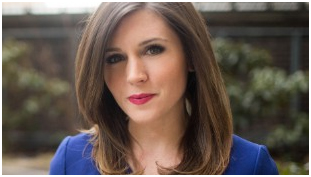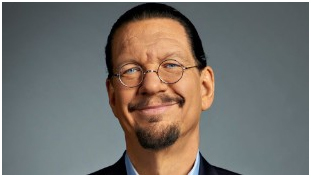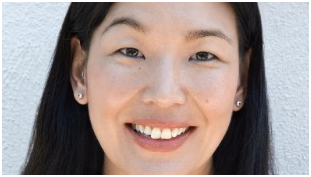Jill Filipovic: How far misogyny can take you in America
 I’ve been writing about women’s rights for more than a decade, mostly online, with the attendant verbal attacks — first in blog and website comment sections, and later on social media. I’ve had stalkers and received rape and death threats. There is not a day that goes by without someone berating me online, not a misogynist slur I have not been called hundreds of times. I thought I knew misogyny.
I’ve been writing about women’s rights for more than a decade, mostly online, with the attendant verbal attacks — first in blog and website comment sections, and later on social media. I’ve had stalkers and received rape and death threats. There is not a day that goes by without someone berating me online, not a misogynist slur I have not been called hundreds of times. I thought I knew misogyny.
And then the Republican nominee for President was caught bragging about grabbing women by their genitals, and won the election anyway.
Women — and men — need to acknowledge what this means: We already knew that sexual abusers could for years operate under the radar of high-profile industries, as has been alleged with Harvey Weinstein.
But women are even further away from safety and equality than the most cynical feminists believed when an admitted sexual predator can actually win a national election.
It wasn’t a surprise that someone such as Donald Trump would yuck it up about sexual assault, or that women accused him of doing what he said he did. Nor was it a surprise that the more craven members of the Republican Party would back him if it meant getting their way on racist immigration bans or tax cuts for the rich they sought. But nearly all of them?
And so many men — most men — voted for him. And not as many, but still so very many, women — typically white women, typically married to men — voted for him, too. Women are nowhere near safe when so many of our family members and friends, our husbands and brothers and sons, support an unrepentant misogynist, or conclude deep disdain for women is something that can be put aside for politics; we are not equal when so many women decided the humanity of their sisters didn’t matter.
Now, the administration of an American president in 2017 is showing women what it thinks of them — weakening birth control access, attacking abortion rights, undermining fair pay laws and more.
I assumed we could mostly agree that misogyny and sexual violence were bad; I assumed my online tormenters were sexist outliers. It turns out we can’t, because they are Trump’s America. They’ve always been haranguing women on Twitter. I just didn’t think they’d make it to the White House.
Jill Filipovic is a journalist based in New York and Nairobi, Kenya, and the author of the book “The H-Spot: The Feminist Pursuit of Happiness.” Follow her on Twitter.
Penn Jillette: Look to Moxie
 I get asked a bunch, “Is your son into magic?” He couldn’t care less.
I get asked a bunch, “Is your son into magic?” He couldn’t care less.
I have never been asked, “Is your daughter into magic?”
My daughter, Moxie, is into magic and is working her way through Teller’s favorite book, “The Royal Road to Card Magic.” Her little hands do a good clean false shuffle. Mox got her favorite Valentine’s attention by showing him a card trick (already more success with magic than I ever had). Backstage, one of the magicians who had “Fooled Us” (on our Penn & Teller show of that name) told her she could become “the greatest woman magician in the world.”
Lack of women in magic is not in the top million most important feminist issues, but magic is my field and Mox is in my family. Magic is still a boy’s club, and most magic patter is just formalized mansplaining.
Mox can fix all that. Mox might become the greatest magician in the world.
Penn Jillette, a writer, television host and frequent guest on a wide range of shows, is half of the Emmy Award-winning magic act duo Penn & Teller. His most recent book is “Presto.”
Ai-jen Poo: Understanding where the inequity lies
 The first step to achieving gender equity is understanding where the inequity lies. Discovering that requires the bravery of women to come forward with their stories. In this context, we assume the moment of courage is breaking the silence — which requires immense courage — but in reality, life after the silence is broken can be the hardest part.
The first step to achieving gender equity is understanding where the inequity lies. Discovering that requires the bravery of women to come forward with their stories. In this context, we assume the moment of courage is breaking the silence — which requires immense courage — but in reality, life after the silence is broken can be the hardest part.
When I was in college, I worked as a hotline volunteer at a domestic violence shelter for Asian immigrant women. The women I spoke to were mostly mothers, and a significant motivation for leaving their abusers was the safety of their children. The majority of those women worked in garment factories, restaurants and in homes as caregivers or house cleaners. Many worked long hours, but it never seemed to be enough to pay the rent or put food on the table. And so they often ended up back in the shelter or back with their abusers.
That women suffer abuse, harassment or inequity in the workplace is undeniable. But the challenges faced after speaking out are so enormous that many women keep their stories silent for years and years, as we read in the news, or are forced back into cycles of violence, as I heard on the hotline. We need to ensure women are heard, but also supported — with economic opportunities and supportive communities — afterward. The only thing worse than silence is isolation and vulnerability after the silence is broken.
Ai-jen Poo is the co-director of Caring Across Generations, director of the National Domestic Workers Alliance and author of “The Age of Dignity: Preparing for the Elder Boom in a Changing America” (The New Press).







 The last Konyak headhunters of Nagaland
The last Konyak headhunters of Nagaland What Does Your Face Say About Your Health?
What Does Your Face Say About Your Health? Meet R.N. Ravi, who is mediating peace with the Nagas
Meet R.N. Ravi, who is mediating peace with the Nagas An orbiting message of peace
An orbiting message of peace










Leave a Reply
Your email address will not be published. Required fields are marked (required)